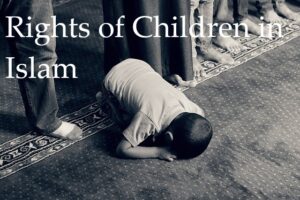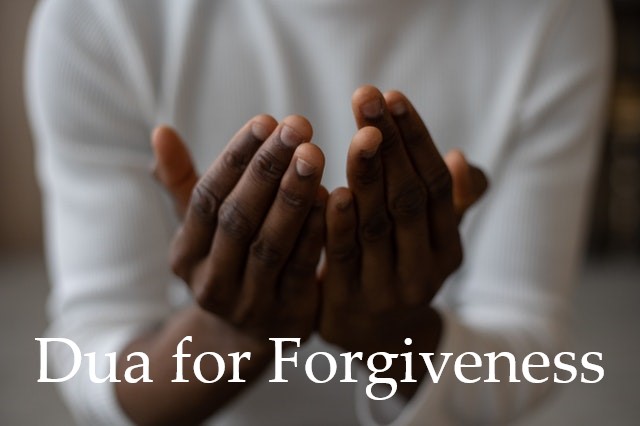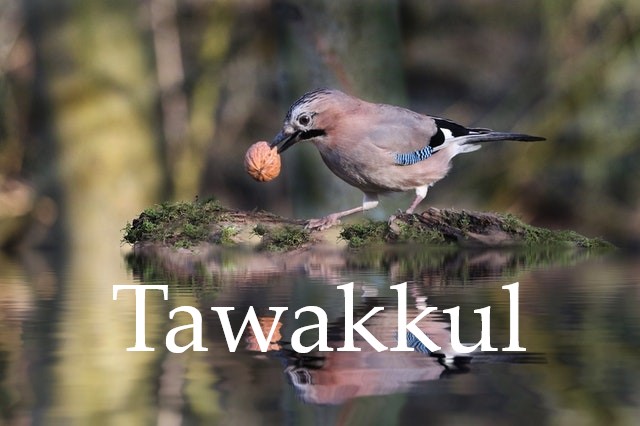To answer the question of what Jannatul Firdaus is we first need to understand what Jannah is.
Jannah, in Islam, is the paradise promised to Al-Momineen (the Believers) in Qur’an. There are a lot of depictions about Jannah. Allah has described it in many beautiful ways and all of those descriptions paint a picture of an enchanting garden where every wish is granted.
We can say that Jannah is an unimaginably alluring garden, beauty of which cannot be described through our worldly languages. All pleasure in this world is somehow incomplete and tainted (for example if you eat too much, you get a stomachache), whereas in Jannah all pleasures are complete, pure and abundant.
Allah (SWT) says in Qur’an:
“And no soul knows what is kept hidden for them, of joy as a reward for what they used to do.” [Qur’an: Chapter 32, Verse 17]”
When talking about Jannah, Allah promises:
“Gardens of perpetual residence; they will enter them with whoever were righteous among their fathers, their spouses and their descendants. And the angels will enter upon them from every gate, [saying], ‘Peace be upon you for what you patiently endured. And excellent is the final home.” [Qur’an: 13, Verse 23-24]
“They will have whatever they wish therein, and with Us is more.” [Qur’an: Chapter 50, Verse 35],”
In this world, whatever we wish for is temporary and will end one day but in Jannah (as promised by Allah) it’s not the case. Whatever we get there is permanent and will be ours forever. Allah (SWT) says:
“And whatever thing you [people] have been given – it is [only for] the enjoyment of worldly life and its adornment. And what is with Allah is better and more lasting; so will you not use reason?” [Qur’an: Chapter 28: Verse 60]
A very abbreviated list of descriptions of Jannah from the Quran & Sunnah are as follows:
- When entering Jannah, believers will be greeted by angels saying “Peace be upon you for what you patiently endured. And excellent is the final home.” (13:24)
- Each believer will be given gardens with abundant food & fruit (likes of which we don’t know in this world), rivers & springs of water, milk & honey (again unlike this world) that never go bad and purifies the drinker (47:15)
- Each believer will have space equivalent to several times that of the whole world (and the quantity increases with the status of the believer) (3:133)
- Each believer will have multiple houses with luxuries that this world cannot compare with
- The food and drink of Jannah taste unimaginably better than that of this world, and can be consumed without limit, and will only benefit the believer
- Men & women will all be young when entering Jannah (33 years of age in this world), will be in better health and look exponentially better and more beautiful than in this world
- They will be served by young boys (who are special inhabitants of Jannah) with spotless appearance
- There are creatures in Jannah with the sole purpose of serving or benefiting the believers
- The inhabitants of Jannah will never experience any negative emotions such as pain or sorrow, and will be perpetually happy, and will glorify Allah
- Every wish is fulfilled in Jannah
- Life in Jannah never ends
- Believers will finally get to see Allah(SWT) and that will be the greatest pleasure of being in Jannah
Meaning of Jannatul Firdaus
Literally translated, Jannah or Jannat means garden, and Firdaus means paradise in Arabic. The word “Firdaus” may also be related to the source of the English word “Paradise”. There are many levels of Jannah and the highest of them all is the Jannatul Firdaus. Prophet Muhammad (SAW) advised that if we were to pray about Jannah we should ask for Jannatul Firdaus. He (SAW) says:

“Paradise has one hundred grades, each of which is as big as the distance between heaven and earth. The highest of them is Firdaus and the best of them is Firdaus. The Throne is above Firdaus and from it spring forth the rivers of Paradise. If you ask of Allah (SWT), ask Him for Firdaus.” [Hadith no. 4331, Sunan Ibn Majah]
And:
“Al-Firdaus is the highest of Paradise and its most expansive, and above that is the Throne of Ar-Rahman (the Most Merciful), and from it the rivers of Paradise are made to flow forth. So when you ask Allah (SWT), ask Him for Al-Firdaus.” [Hadith no. 2530, At-Tirmidhi]
Whenever we visit some place we always wish for the best view or the best seat. Al Firdaus is closest to Allah (SWT), so what can be better? The greatest gift a Mo’min (believer) will be given once he/she reaches Jannah is finally seeing Allah. And what better place to finally see Him from?
The Prophet Muhammad (SAW) described its beauty by mentioning that it’s the closest thing to Allah (SWT), The Most Merciful. He is The Source of Mercy, who takes care of us and takes away all of our pain, removes our sufferings and discomfort. He knows how to take care of the ones who are under His Shade, how to protect them. Which makes Al-Firdaus the best of the best, with a promise of not only beautiful view or best seat but also security, peace and comfort.
How do we enter Jannatul Firdaus?
Allah (SWT) says in the Q:uran
قَدْ أَفْلَحَ الْمُؤْمِنُونَ
1. Most certainly those Believers have attained true successالَّذِينَ هُمْ فِي صَلَاتِهِمْ خَاشِعُونَ
2. They who are during their prayer humbly submissiveوَالَّذِينَ هُمْ عَنِ اللَّغْوِ مُعْرِضُونَ
3. And they who turn away from ill speechوَالَّذِينَ هُمْ لِلزَّكَاةِ فَاعِلُونَ
4. And they who are observant of Zakahوَالَّذِينَ هُمْ لِفُرُوجِهِمْ حَافِظُونَ
5. And they who guard their private partsلَّا عَلَىٰ أَزْوَاجِهِمْ أَوْ مَا مَلَكَتْ أَيْمَانُهُمْ فَإِنَّهُمْ غَيْرُ مَلُومِينَ
6. Except from their wives or those their right hands possess, for indeed, they will not be blamed –فَمَنِ ابْتَغَىٰ وَرَاءَ ذَٰلِكَ فَأُولَٰئِكَ هُمُ الْعَادُونَ
7. But whoever seeks beyond that, then those are the transgressors –وَالَّذِينَ هُمْ لِأَمَانَاتِهِمْ وَعَهْدِهِمْ رَاعُونَ
8. And they who are to their trusts and their promises attentiveوَالَّذِينَ هُمْ عَلَىٰ صَلَوَاتِهِمْ يُحَافِظُونَ
9. And they who carefully maintain their prayers –أُولَٰئِكَ هُمُ الْوَارِثُونَ
10. Those are the inheritorsالَّذِينَ يَرِثُونَ الْفِرْدَوْسَ هُمْ فِيهَا خَالِدُونَ
11. Who will inherit al-Firdaus. They will abide therein eternally.[Qur’an Chapter 23, Verses 1-11)
These are the characteristics of people who will enter Jannah Al-Firdaus.
As mentioned above, to achieve Jannatul Firdaus, in addition to asking Allah for it and increasing our good deeds with activities such as adhkar, one has to:
1. Achieve Khushu’:
“They who are during their prayer humbly submissive”
People who will achieve Khushu’ in their prayers are promised to enter Jannatul Firdaus. Khushu’ means being present in the prayers with all your heart and mind, realizing that you are talking to Allah (SWT) and enjoying the prayer.
While praying, we are in a conversation with Allah (SWT) and we owe Him our full attention.
One might wonder how is this a conversation when only we are talking and Allah is listening. During Salah after all it is His words we’re reciting. The Quran is the word of Allah (SWT) and after the prayer we make Duaa’ where we talk and ask Allah for everything we need.
2. Turn away from ill speech
“And they who turn away from ill speech”
Laghw refers to words that bring no benefit and rather bring harm e.g. lying, backbiting, cursing, using inappropriate words etc… The reason behind this is that ill speech harms you, people around you and the society at large. It distracts you from the main purpose of life. You will lose sight of your destination and get lost and only cause damage. That is why Allah (SWT) wants us to stay away from useless activities and speech. Prophet Muhammad (SAW) says: “A sign of man’s good observance of Islam (his piety) is to keep away from that which does not concern him” [At-Tirmidhi 2317].
3. Those who are regular & sincere in Zakah
“And they who are observant of zakah”
The concept of Zakah means to purify our wealth but according to scholars this ayah refers to self-purification as well. All of us have many bad habits and we are well aware of all of them. Self-purification means to get rid of the bad habits and submit yourself to Allah (SWT). How can you purify yourself? There are two ways:
- Write down your bad habits and try to avoid them. If you find yourself committing those habits, take a deep breath and leave them for the sake of Allah and for Jannatul Firdaus. Keep reminding yourself of your destination Al-Firdaus so that you can avoid those bad habits. Even if you return to them, repent and avoid.
- In this era of social media it’s very easy to get lost. So, unfollow all those pages which create hurdles in your purification and trigger your bad habits & Allah will replace them for you with something better InShaaAllah. Allah (SWT) says, “And do not pursue that of which you have no knowledge. Indeed, the hearing, the sight and the heart – about all those [one] will be questioned.” [Qur’an: Chapter 17: Verse 36]”.
But returning to the point stated in the ayah above, it is important that we ensure we earn and spend in Halal ways & that we purify our wealth through Zakah and other forms of charity. It is of utmost importance that we are regular & sincere in Zakah. Wealth that is not purified or are not earned in a Halal ways have a way of harming it’s owner or leaving him/her entirely.
4. Guarding Chastity
“And they who guard their private parts. Except from their wives or those their right hands possess, for indeed, they will not be blamed. But whoever seeks beyond that, then those are the transgressors”.
These ayahs are commanding us to guide our chastity or to not engage in fornication or other forbidden sexual behaviors. These ayahs are the proof that dedicating our time or thoughts to someone out of marriage is neither right nor worthwhile and the next person can leave at any point if not bound by contract of marriage thus leaving us broken and shattered. Another meaning from these ayahs is that guard your hearts and gaze. When the wife of Al-Aziz made advances towards Yusuf (AS), he resisted to the point where he got into trouble and deliberately went to prison to avoid the trial & temptation, even though the wife of Al-Aziz was a rich and beautiful woman.
5. Honor your words, trusts and promises
“And they who are to their trusts and their promises attentive”
Promises are taken very seriously in Islam. Honesty, trustworthiness and keeping our words are the things considered fundamental to Islam. Think about the people/institutions you get into transactions with. You continue to do business with them because they are honest – more honest than the ones you don’t do business with. So you can see it is honesty that actually draws in wealth, not cheating to get wealthy. You can only cheat to get wealthy once, and you will most likely lose the wealth anyway.
The Prophet (SAW) himself was called as al-Amin and al-Sadiq (the honest/trustworthy and truthful) by others who knew him even before he became the Messenger of Allah. He was so trustworthy that when he was migrating to Madina (Hijrah) he had to tell Ali (RA) to return the property people had entrusted to him for safekeeping – these were the same people who were expelling him.
6. Maintain Prayers on time
“And they who carefully maintain their prayers”
People who perform their prayers on time and are consistent in their prayers are the ones who will be entering Jannatul Firdaus. It is one of the most beloved deeds to Allah (SWT). Allah mentions in the Quran:
“Indeed, prayer has been decreed upon the believers a decree of specified times.” (4:103)
Fulfilling the Salah within it’s due time is of paramount importance. All other deeds will become secondary on the day of Judgement if the requirement for Salah are not met adequately.
To conclude
Provided we meet all of the criteria above, and provided we ask Allah for Jannatul Firdaus, Allah will grant this greatest of rewards to us. And Allah knows best.
May Allah Grant us Jannatul Firdaus. May Allah allow us to be close to Him and to our beloved Prophet Muhammad (SAW) in Al Firdaus. May Allah keep all of our loved ones who are with us or have passed, close to us in Jannah.




